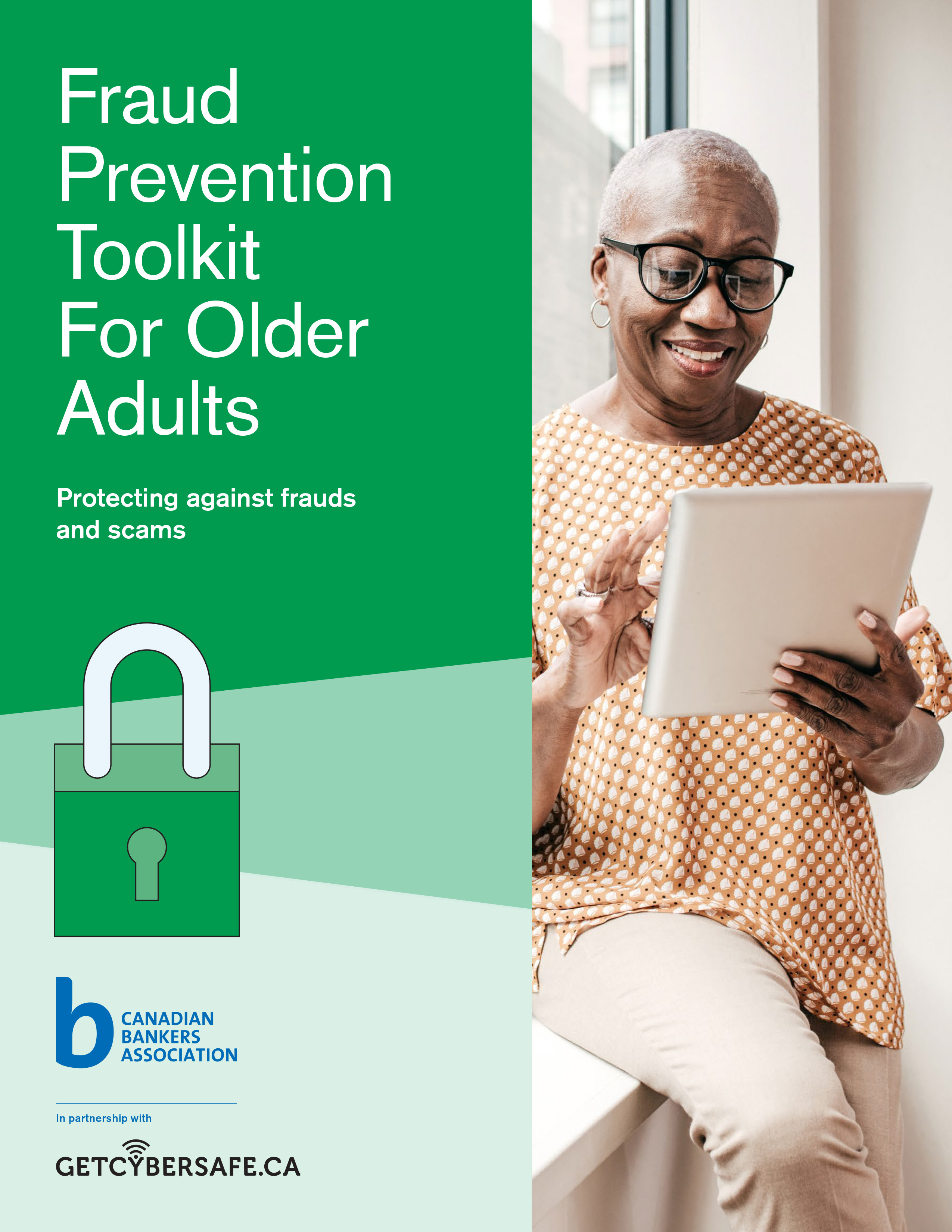Banks provide accounts and services just for seniors and the CBA offers a free seminar program to help seniors make the most of their money in retirement and protect against fraud and financial abuse.
Accounts for seniors
There are many bank account packages designed specifically for seniors. You may wish to compare the packages for seniors to find out if there is one that meets your needs.
There are both low-fee and no-fee accounts available for seniors. These accounts offer regular transactions such as withdrawals, deposits, transfers, bill payments and cheque-writing privileges. Some seniors’ accounts may include more specialized services such as no-fee money orders, certified cheques and a discount on safety deposit box rentals. Guaranteed Income Supplement beneficiaries are also eligible to have the fees waived for the low-fee account.
Code of Conduct for the Delivery of Banking Services to Seniors
Banks in Canada are committed to serving seniors' needs.
In 2019, a Code of Conduct for the Delivery of Banking Services to Seniors was developed, setting out the principles that guide banks when they deliver banking products and services to Canada’s seniors. The Code reinforces banks’ longstanding commitment to keeping seniors and their money safe and ensuring inclusive, responsive and trusted access to banking products and services.
To learn more, see: https://cba.ca/voluntary-commitments-and-codes-of-conduct.
Financial literacy resources for seniors

Building financial literacy skills
Your Money Seniors, developed in collaboration with the Financial Consumer Agency of Canada (FCAC), is the CBA’s free, non-commercial seminar program for Canadians entering — or already in — retirement. The program has three modules to deliver much-needed information on:
- how to plan your income and make the most of your money in retirement
- how to spot and avoid financial abuse
- how to detect and prevent financial fraud
Seniors’ groups across the country can contact the CBA at www.cba.ca or 1‑800‑263‑0231 extension 260 to request that one or all of the three modules be presented to their group.
Here are some tips from the program.
Planning for the unexpected in retirement
A lot can change in retirement. A leaky roof, a car accident, a health crisis – these are only a few of the curveballs life can throw at you. And they can affect you financially if you’re not prepared. What would be the impact on your finances if the unexpected happened? How would you manage it? Planning for the unexpected is key to managing your finances in retirement. Here are four ways you can ease the pain of unplanned expenses:
- Save – Put aside some extra money to help you cover a major expense during retirement. Reflect your emergency savings in your overall budget – if you don’t have any money to cover an unexpected expense, then can you cut back in some areas to build your emergency fund?
- Do your paperwork – Make sure you have Powers of Attorney (POA) for property and for health in place and obtain legal advice to make sure they are properly drafted.
- Consider health insurance – When you retire, you may not have the private health coverage that you had when you were employed. If not, consider private health insurance to make sure you can handle the costs of healthcare in retirement.
- Reduce any debt – If you’re on a fixed income, it could be a good idea to reduce or eliminate your debt.
How to spot and avoid financial abuse
A financial abuser can be a trusted person in your life: a spouse, adult child, grandchild or other family member, caregiver, friend or neighbour. Financial abuse occurs when someone tries to take or control what belongs to you for their own benefit, not yours. This can include your money, your property, or your personal information. Financial abuse is unethical, and in many cases it is also illegal.
Red flags of financial abuse
- A sudden change in living arrangements – Are you – or is somebody you know – suddenly moving in with a relative or into a nursing home against your or their will? There might be a good explanation – or it could be a sign of abuse. Ask questions if you’re unsure.
- Abrupt or sudden change of beneficiary – Are you being pressured to change your Power of Attorney or will? That’s a red flag and a sign that you should get some outside advice from a friend or a professional.
- Confusion about how money is spent or missing money – Are you missing money from your bank account – or are you seeing unauthorized charges appearing on credit card statements? That’s a sign of financial abuse and you should immediately contact your bank or credit card provider.
- Things are missing – Is someone taking your things without your permission? Whether it’s a car or a keepsake, if someone is taking things from you and refusing to give them back on demand, it’s a sign of financial abuse.
Remember, financial abuse is a violation of your rights. It is not your fault, and there is help available.

Financial fraud is any kind of crime that targets your money through your bank accounts, credit cards, or investment accounts. Think of it as the modern-day equivalent of a pickpocket – except in this case, scammers are looking for any personal information that can be used to get your money. Here are a few examples that we cover in the Your Money Seniors seminar: Financial Fraud – Know the signs, empower yourself:
- Identity theft — A criminal steals your information to access your bank accounts, government benefits — just about any area of your life. All this can start with basic information like your birth date and your name. Identity theft is the gateway to many other types of financial fraud.
- Credit and debit card fraud — When someone gets control of your credit card or debit card and begins to make fraudulent charges – or withdraw your money.
- The Grandparent Scam — The grandparent scam involves a criminal calling you by phone and claiming to be your grandchild. He or she will then ask for money to help them out in an emergency – a car accident or a problem in a foreign country. They’ll ask you to send money through a money transfer service or to have the cash ready for a courier to pick up – urgently and with little time to think twice. They’ll probably tell you not to tell their parents.
- The Romance Scam — Typically the victim and criminal will meet through a social media or dating site. The criminal will then try to develop a relationship with his or her victim, sometimes spending several months making the victim feel they are in a romantic relationship, ultimately making requests for money to pay for bogus emergencies.
A toolkit to help combat fraud
With a fraud prevention checklist and tips on how to spot phone fraud, the grandparent scam and tech support scams, the CBA’s Fraud Prevention Toolkit for Older Adults can help you protect against financial crime. Download a copy at https://cba.ca/fraud-prevention-toolkit-older-adults.
